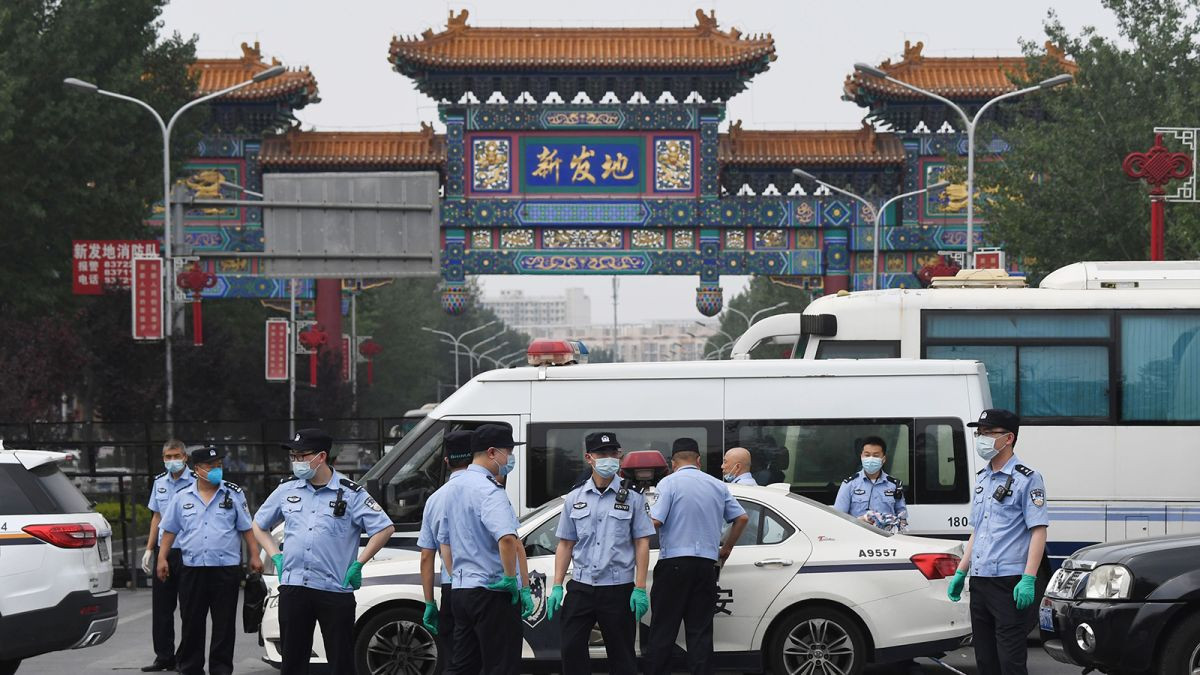Asia
COVID-19: Fresh outbreak in Beijing, cases rise to 79
The Chinese capital had no new cases for over 50 days

Beijing on Monday reported 36 fresh Covid-19 cases, raising fears of another wave in the capital city. An equal number of cases were recorded on Saturday. Earlier, the Chinese capital had no new cases for over 50 days, said a BBC report.
Chinese Vice Premier Sun Chunlan instructed officials to take “decisive measures”, alerting of a high risk of the virus spread. The latest outbreak started at the city’s Xinfadi wholesale market. The administrative head and some other officials of the market have been sacked.
According to the South China Morning Post, the fresh outbreak has affected 79 people connected to the wholesale market. It supplies food items to provinces in the north such as Shanxi, Hebei, Shandong, and Liaoning, which also recorded cases linked to Beijing. The coronavirus was detected on salmon chopping boards at the market, stated local reports.
According to China’s National Health Commission, Beijing recorded a new virus case on Thursday and six on Friday in almost two months. The market was immediately shut down following detection of 36 new cases. In all, 11 nearby neighbourhoods had to face restrictions as well. Some more localities around the market had to face restrictions. Though residents can move around, neither visitors nor deliveries were allowed.
Schools and nurseries near the market were told to shut and the re-opening of primary schools, originally scheduled for today, has now been postponed, reported the Global Times.
Nearly 10,000 staff at the market will be screened for Covid-19. Over 6,000 workers (70%) at the market were tested and found to be negative, stated South China Morning Post. The news of the fresh virus infections adversely affected Asian stocks. The Nikkei 225 in Japan slipped by 0.91 per cent while South Korean Kospi decreased by 0.85 per cent.
The authorities instructed people who had visited the market in the past fortnight to quarantine themselves. A press meet on China’s economy was cancelled on Monday morning. Speaking about possibilities of how the virus was imported to the market, Beijing Centre for Diseases Prevention and Control epidemiologist Yang Peng said contaminated frozen food contained the virus while transporting. He said the virus could have spread by a positive person sneezing or coughing at the market.





